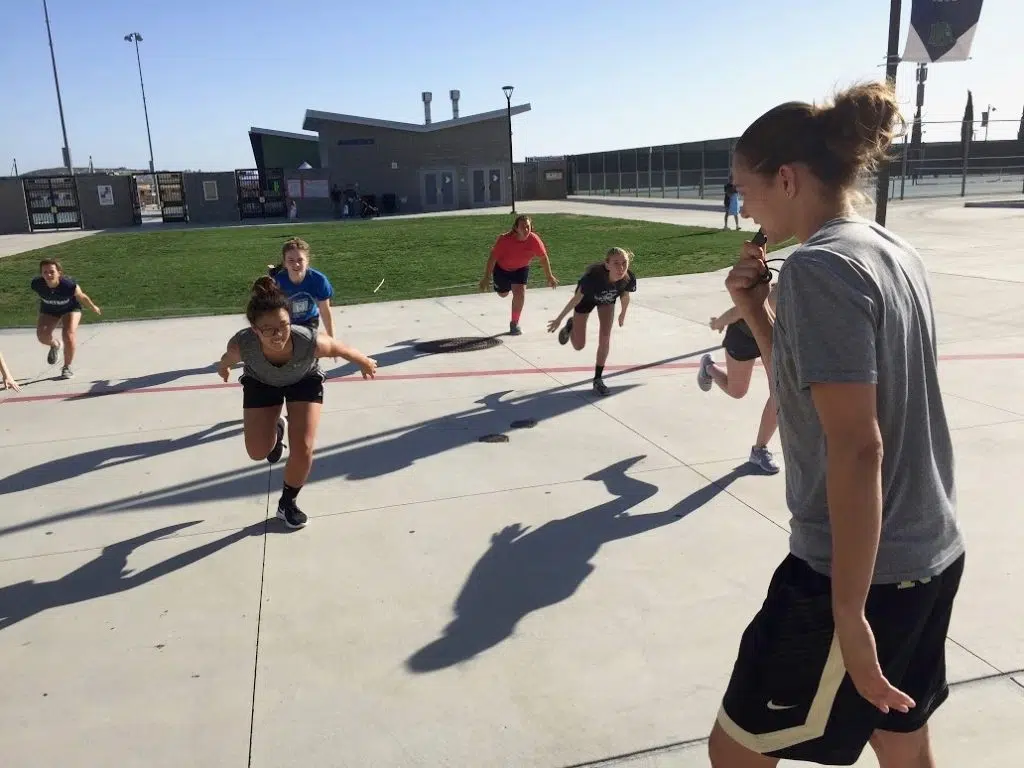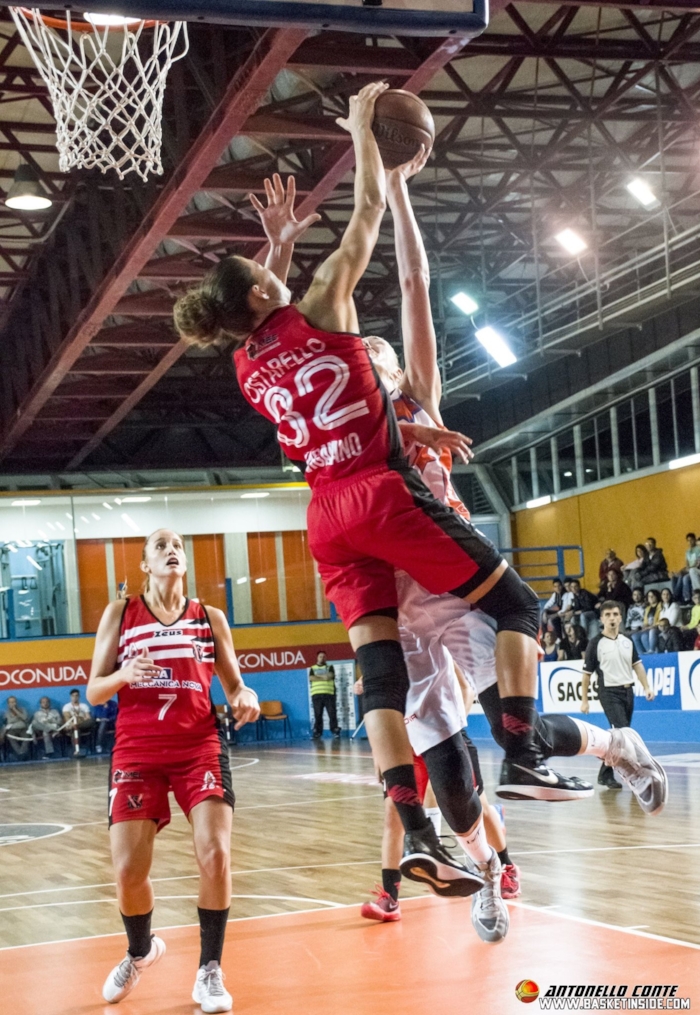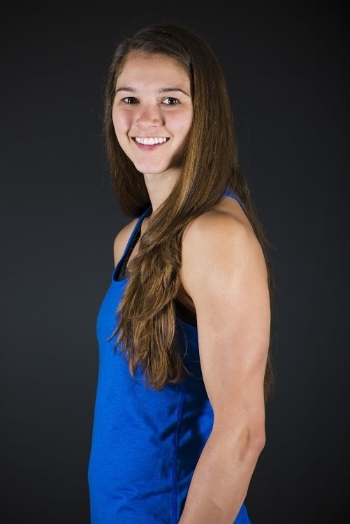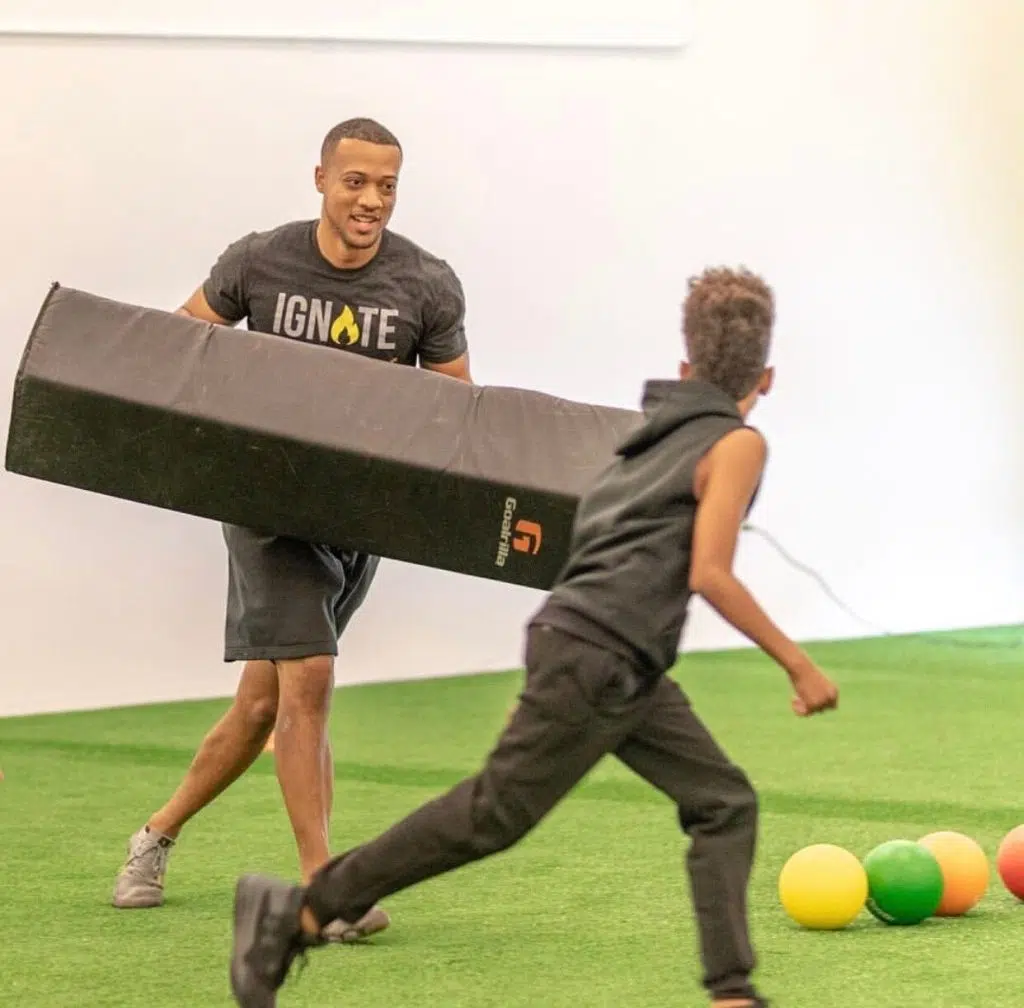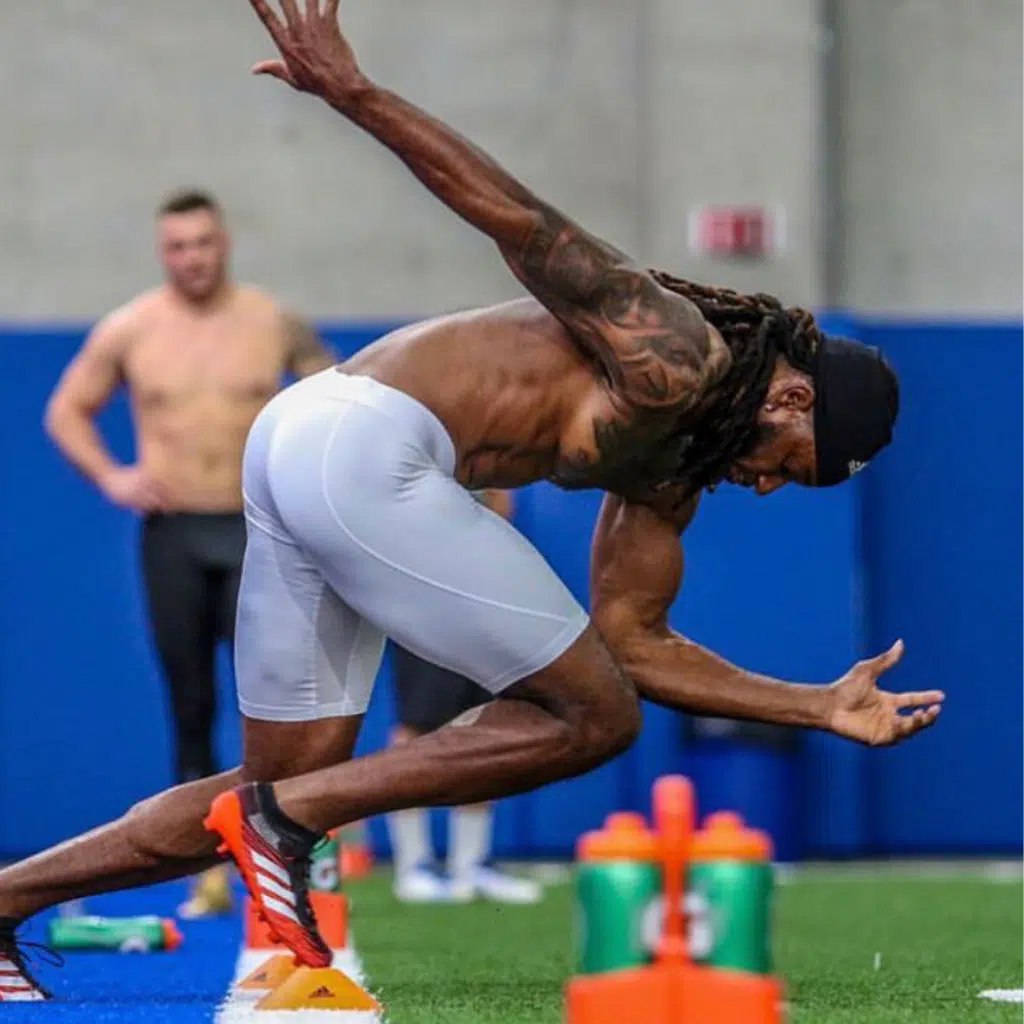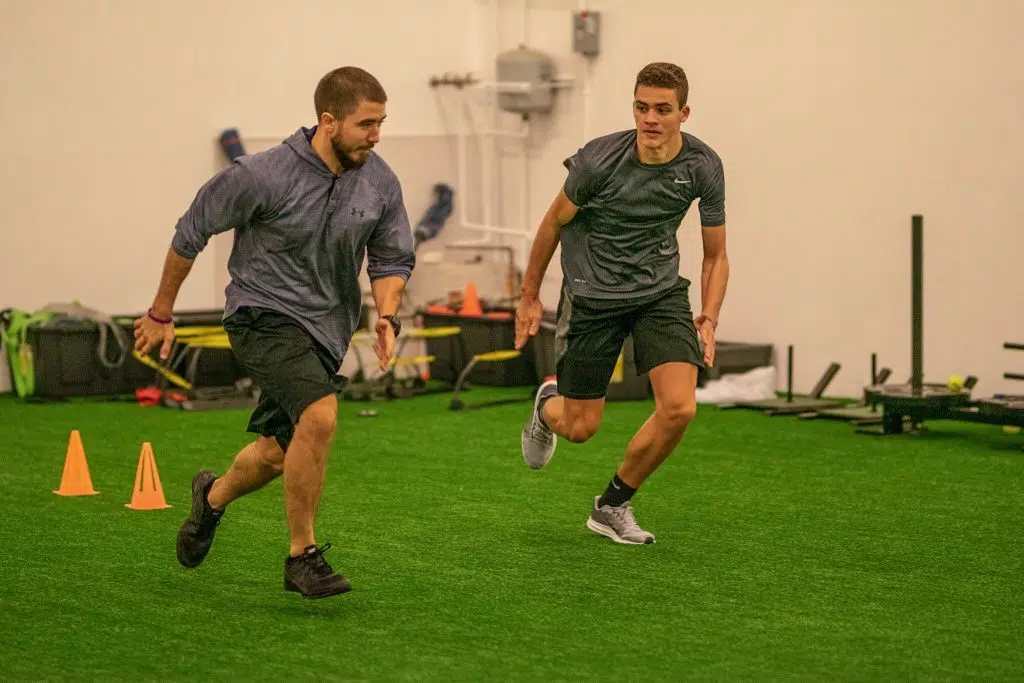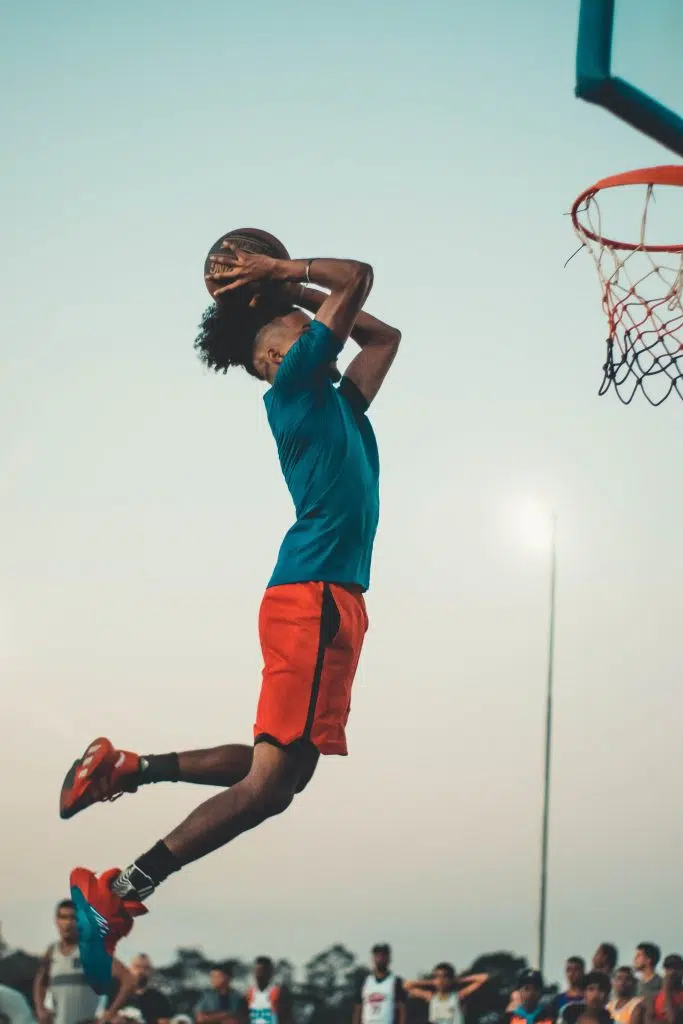One of my goals with Ignite is to become a network and resource for like minded professionals. A resource for coaches and fitness professionals who are doing great work, and pushing the industry forward. ….Today, I share my conversation with Sam Ostarello. I met Sam earlier this year at the Complete Speed and Power Summit in California, an event put on by Athletes Acceleration.
Sam is a performance coach based Based out of San Diego. Sam services primarily athletes and is also a basketball skills trainer. Sam and her company, Elite Performance have quickly become one of the go-to names for sports performance training in the area.
In our conversation we explore Sam’s experience traveling the world playing professional basketball, her philosophy on training female athletes, and some of the habits that make her successful…Without further adieu ladies and gentlemen, my conversation with Sam Ostarello!
Background and Traveling the World
JAVI: So I’ll start out here. How did you first become a performance coach?
SAM: Being a performance coach kind of started as an athlete, as a basketball player. I got really involved in my college strength and conditioning program, to the point of, I offered to be a guinea pig for my coach. And I just kind of fell in love with the process of becoming better, and after playing basketball overseas, I thought, “How could I give back, how could I really use my talents, use my degree?” So I took the route of becoming a sports performance coach, and that’s probably one of the best decisions I’ve ever made.
JAVI: Awesome. Now you said you played professionally, right?
SAM: Yes, I played college basketball, four years, started at Purdue University from ’09 to ’13, and then I played for three years overseas in Turkey, Italy, and Czech, and a little bit in China.
JAVI: Wow, that’s crazy, I didn’t know all that.
SAM: Yeah.
JAVI: You’re a little bit more well-traveled probably than the average person, but is there like an overall theme, something you learned from your travels overseas?
Sam at Purdue.
SAM: I would say the biggest lesson that I learned was being true to yourself. Being true to yourself, but being open to differences. When you’re submerged into a culture, you find this innate need to assimilate, which I think is really, really important, you don’t want to stand out, you want to fit in a little bit, you don’t want weird looks.
It’s vastly different going from America to China, and then from China to Turkey, and then Turkey to Czech, and then to Italy … Every culture is different, and I think it’s important that you grab something from each of those experiences, and mold it into who you are, but staying true to yourself.
Training Philosophy
JAVI: That’s really cool….So you got into the industry after your playing career was over. And then from that, how did you develop, or what is your training philosophy, and who do you service primarily?
SAM: My training philosophy … I’m very set on knowing that an athlete should want to train to perform, and not just work out to play. I have more athletes than I do general population, specifically elite athletes.
A philosophy question is very tricky, because I don’t think there is any such thing as like, “I’m really good at increasing someone’s vertical, so I’m the jump trainer.” Or something like that, I don’t think you can be boxed in that way.
JAVI: Yeah.
SAM: So I think that’s the biggest thing I preach to my athletes, like “Don’t come into the gym expecting to do the workout and get the benefit from it. Make the benefit, make it happen. Go in, get it done. Come to train.” So I actually don’t even use the word workout, no, we’re not gonna work out today, we’re gonna train. We’re going for a goal.
Sam’s Pro Days
And I tend to use that philosophy for my general population as well. I do not use the word ‘workout’ whatsoever.
JAVI: Okay I like that..Personally, I don’t like to use use the word trainer to often, and you’re probably along the same lines. I prefer the term ‘performance coach’. At the end of the day with these athletes, yes, you’re chasing a goal, but the end goal is to perform, right?
SAM: Well because, sorry, when you have a game, it’s a performance, people come to watch you, you’re entertainment.
JAVI: Haha, you’re right!
SAM: So, if you’re not performing at a high level, they could go to a park and watch somebody play. I mean, that’s just silly. So when people are putting their time and their investment into watching you shoot a ball, throw a football, jump, swim, dive, whatever your sport may be, perform for them.
Girls Can Dunk Too
JAVI: So obviously, in this industry that we’re in, performance training, sports performance, it’s a male-dominated industry. As a female, is there any specific challenges that you face?
SAM: Yeah. I would say the specific challenges are … Maybe they’re not specific to male/female, but I think it’s just anybody. It’s just comparisons in a respect factor. I’ve not really run into too much heckles, for being a female in a male-dominated industry.
I feel like once they come to a workout, a training session, once they come and get some work in, they realize, well I’m just as hard as their male football coach.
JAVI: Any examples?
SAM: So here’s an example for you. I was teaching a kid how to jump, how to jump and how to dunk, so a dunk technique. How to place the hand, how to drive it through the back of the basket, not over the rim, just certain things like that. And his buddy was like, “Well how can you teach it if you’ve never done it?” I’m like, “All right …”
So me being me, I tightened up my laces on my sneakers and I proved it. Now I know I can’t prove everything, and I don’t think that should be a coaching philosophy of sorts, but when it comes to things like that, and the misconception that girls can’t jump, or girls can’t bench 135 or something like that, I have the tools and the abilities to show that it doesn’t matter if you’re male or female. As an athlete, as a coach, just go get it done. Whatever it may be, if you can get it done, get it done.
JAVI: Yeah, it sounds like some of the same challenges that I think male performance instructors would have too. I think people just want to test you in this industry and make sure you’re legit.
SAM: Yeah.
JAVI: And you kind of said something to this a little bit, but what’s the biggest misconception you’d say for training female athletes?
SAM: For specifically training a female athlete as opposed to a male athlete?
JAVI: Yes.
SAM: Yeah, so I think that the biggest misconception is that females need to be coddled, or like they need to be eased into being strong or powerful. But males have that same struggle, they just present it in a different way through a different concept.
Now for my male athletes, they’re kind of … They think about it, because they don’t want to fail in front of a female. Does that make sense?
JAVI: Yeah, that makes sense. I can see where that’s coming from. That definitely makes sense.
SAM: So misconception-wise, I would just say that females, they think they have to be coddled. Or like the parents think they have to be coddled. Let your daughter be strong. Let her be powerful.
JAVI: Completely agree.
SAM: Yeah. I would say that.
JAVI: I think there’s still a little bit of a misconception that women shouldn’t train just as hard as men, or need to be coddled, I think you’re on the money with that one.
SAM: Yeah.
Routines and Keys to Success
JAVI: So you own your own business. Tell me what would be one of the biggest challenges of owning your own business?
SAM: Time management. So not having a facility, I work out of different high schools. I also have a home studio that I work out of, but I would say, separating work from individual life, personal life, because my whole world is about training. My whole world is involved with it, and my day-to-day …I don’t have any trainers under me right now. We’re looking to expand soon, probably in the summer. We’ve been open a year in July, so well expand soon.
JAVI: Yeah, I agree, that’s definitely one of the biggest challenges. Time management, work-life balance, and making sure you can sustain that pace that you’re on.
SAM: Right, because you don’t just clock in and clock out, you gotta be on all the time. And that’s not such a bad thing, you know? Most people, when they would ask this, they would expect getting clients in. No, that’s easy. That’s not hard work. Maintaining the client isn’t even hard work. It’s all the other behind the scenes stuff. And I think that’s a misconception as well with owning your own business.
JAVI: Yeah, I would agree with that too. So you are experiencing a lot of success right now. You said your business has grown quite a bit, you guys are looking to expand, so that’s awesome.
SAM: Thanks!
JAVI: What is a current current book you’re reading right now?
SAM: I’m actually getting through Conscious Coaching right now, by Brett Bartholomew.
JAVI: Yeah I’ve heard good things. I’ll have to check it out.
SAM: Yeah. It’s actually really good.
JAVI: So I’m a big believer in habits, that habits every day play a big factor in success. What’s one habit that you do every day that contributes to your success?
SAM: This might sound a little funny, but sleeping. Sleeping is a habit that I need every day. This goes back to time management. I know, for a fact, how many hours I need for sleep, and I get those amount of hours. So maybe not the first thing that comes to someone’s mind, but sleep is so important, but I also wake up at the same time every day. I think setting your morning schedule is crucial. So things for success, I go to sleep, that’s part of my first habit.
JAVI: What’s your morning routine like??
SAM: I wake up at the same time every day, around 4,4:15 at the latest….As soon as I wake up, I kind of simmer in bed for about five minutes, and I pray, and I’m thankful. Pray and thankful. I think it’s super important to reflect on, as soon as you wake up, why you’re waking up. Why you’re thankful for this day.
JAVI: That’s good, that’s awesome. So we’ll wrap this up here soon…. Do you have any tips for those of us who maybe struggle with sleep? How do you just shut it down??
SAM: Yeah, so I think meditation is important. Meditation can come in any form of stretching at night, stretching and thinking about your day. Take five minutes. Stretch, think about your day. It kind of relaxes your mind. For me, lying in bed, praying, being thankful, I do it at night, in the morning, that kind of relaxes me too.
JAVI: Yeah, so it’s almost like preparing for the next day, right? So it’s putting in that prep work to be successful for the next day.
SAM: You know that quote, “Failing to prepare is preparing to fail?” It holds true.
JAVI: Yep, no doubt.
SAM: But I think the little things, those little, little things, can make big habits, either good or bad, little things that you do, whatever it may be. So I think trying to avoid making bad habits is a good start.
JAVI: Yeah, I agree, that’s a good place for people to start.
So Sam , I appreciate all the content you’ve given us, it’s been awesome. Is there anything you’d like to close out with, and is there anything for people that want to reach out to you, any kind of contact information?
SAM: I just want to say thank you, for putting me on your blog and kind of getting that next generation of strength and conditioning of performance coaches out there, the concepts that we have, the knowledge that we have, the experiences that we have. I think in this industry, it’s super important to keep evolving and expanding that coaching pool, if you will. So I just want to thank you for the opportunity.
And as far as reaching out, we’re on Instagram, we’re on Facebook, look us up on Google, eliteperformancesd.com is our website, and all the contact information is on there. And yeah, we look forward to hearing from you.
JAVI: All right then, well I appreciate your time, and I will chat with you later, okay?
SAM: All right, thanks Javier, you have a good one.
JAVI: You too.

